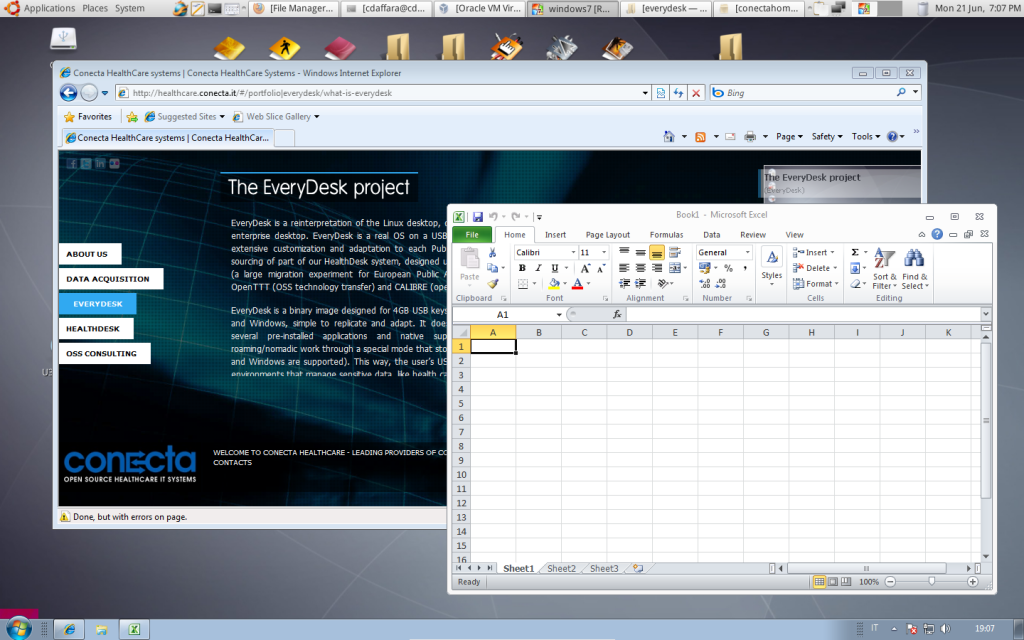Archive for June 21st, 2010
And now, for something totally different: EveryDesk!
Posted by cdaffara in OSS adoption, blog on June 21st, 2010
Now that most of our work for FLOSSMETRICS is ended, I had the opportunity to try and work on something different. As you know, I worked on bringing OSS to companies and public administration for nearly 15 years now, and I had the opportunity to work in many different projects with many different and incredible people. One of the common things that I discovered is that to increase adoption it is necessary to give every user a distinct advantage in using OSS, and to make the exploratory process easy and hassle-free.
So, we collected most of the work done in past projects, and developed a custom desktop, designed to be explorable without installation, fast and designed for real world use; EveryDesk is a reinterpretation of the Linux desktop, designed to be used in public administrations or as an enterprise desktop. EveryDesk is a real OS on a USB key, not a live CD; this way the system allows for extensive customization and adaptation to each Public Administration need It is the result of the open sourcing of part of our HealthDesk system, designed using the result of our past European projects COSPA (a large migration experiment for European Public Administrations), SPIRIT (open source health care), OpenTTT (OSS technology transfer) and CALIBRE (open source for industrial environments).
EveryDesk is a binary image designed for 4GB USB keys, easy to install with a single command both on Linux and Windows, simple to replicate and adapt. It does provide a simple and pleasing user interface, with several pre-installed applications and native support for Active Directory. EveryDesk supports roaming/nomadic work through a special mode that stores all user data on a remote SMB server (both Samba and Windows are supported). This way, the user’s USB key contains no personal data, and can be used in environments that manage sensitive data, like health care or law enforcement.
The files and images can be downloaded from the SourceForge project page.
EveryDesk integrates a simple and easy to use menu, derived from Novell usability research studies, providing one-click access to individual programs, documents, places; easy installation of new software or updates, thanks to the fully functional package manager.
EveryDesk includes support for Terminal Services, VNC, VmWare View and other remote access protocols. One peculiarity we are quite happy with is the idea of simplified VDI; basically, EveryDesk integrates the open source edition of VirtualBox, and allows for mounting the disk images remotely – so the disk storage is remote, and the execution is local. This way, VDI can be implemented by adding only storage (that is cheap and easy to manage) and avoiding all the virtualization infrastructure.

The seamless virtualization mode of VirtualBox allows for a quite good integration between Windows (especially Windows 7) and the local environment. Coupled with the fact that the desktop is small and runs in less than 100MB (with both Firefox and OpenOffice.org, it takes only 150MB) it makes for a good substitute of a traditional thin client, is manageable through CIM, and is commercially supported. Among the extensions developed, we have a complete ITIL compliant management infrastructure, and digitally-signed log storage for health care and law enforcement applications.
For more information: our health care home page, main site, on twitter, facebook, and of course here!


